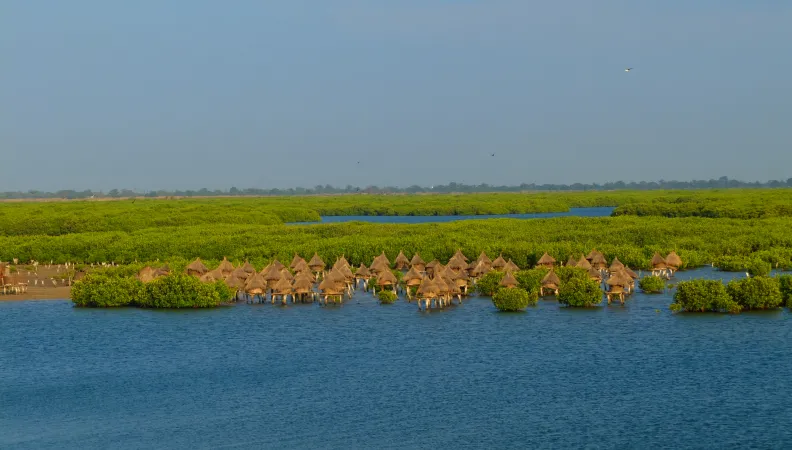Share the page
An international approach to sustainable management and biodiversity protection of small islands (SMILO)
Project


-
Project start date
-
Status
Completed
-
Estimated date of project termination
-
-
Project financing date
-
-
Financing duration
-
5 years
-
Type of program
-
FFEM
-
Global financing amount
-
7 708 000 €
-
FFEM financing amount
-
451 000 €
-
Country and region
-
West Africa, Mediterranean, Indian Ocean
-
Location
-
Multi-Pays
-
Type of financing
-
Grant
-
Partners
-
CEPF
-
Beneficiaries
-
French Coastal and Lake Shore Protection Agency
-
Type of beneficiary
-
Non-financial public or parastatal company
Encouraging, supporting and enhancing approaches to the protection and sustainable management of natural resources on small islands of less than 150 km², through the creation of a platform for good practices, an international network and a “Sustainable small islands” accreditation.
Context
While occupying just 5% of the Earth’s surface, islands are home to 20% of terrestrial plant and vertebrate species. 600 million inhabitants depend on the ecosystem services provided by island environments for water, food, housing, medicines and the resources necessary to their daily lives (Convention on Biological Diversity (CBD) 2010).
The world’s small islands share common problems: pressures exacerbated by the small size of their territories, limited resources, sensitivity to cli-mate change, and variations to their seasonal flows.
Despite a number of international “network” initiatives sponsored by institutions such as the Global Island Partnership (GLISPA) or UNESCO, leaders of small islands that do not benefit from protected status and are not States in their own right experience relative isolation in implementing ad-hoc management measures on their territory: shortage of resources, lack of experience, poor access to information on good practices, infrequency of discussion with their peers. These are all obstacles to the deployment of good management practices on regions often characterised by the rich-ness of their land and marine heritage.
Description
The project is structured in four components:
- Implementing an “Initiative Bank” which brings together and adds value to experience that is reproducible in an island environment, and good industry practices in the form of technical sheets and online videos in English and French.
- Creating and energising the international “Sustainable Small Islands club” which brings together small island leaders, technical specialists and project partners (funding partners, NGOs, sponsors, dedicated research foundations etc.).
- Assessing regions with a view to implementing the accreditation process. The accreditation process envisaged supports interested small islands in establishing a sustainable management project in their region.
- Management of the initiative to ensure long-term viability. Activities intended to ensure the management, external communication and the monitoring and evaluating of the project by the initiative’s Secretariat, together with commercial action to assure self-sustainability on conclusion of the 5-year project.
7 pilot sites will benefit from the FFEM’s support: the island of Ibo (Mozambique), the Emerald Sea islands (Madagascar) , the islands of Urok and Bolama (Guinea-Bissau) , the island of Gorée (Senegal), the island of Principe (Sao Tome and Principe), the island of Santa Luzia (Cape Verde), and the island of Kerkennah (Tunisia).
13 other islands from the Global North are associated with this initiative: Tavolara (Italy), Palmaria (Italy), Capraia (Italy), Sainte Marguerite (France), Lavezzi (France), archipelago of the îles d’Hyères (France), Sazani (Albania), Sifnos (Greece), Tabarca (Spain), Cavoli (Italiy), Archipelago of Embiez (France), îles du Frioul (France), Zlarin (Croatia), Ilur (France), Quéménès (France), Millau (France) and the Archipelago of Glénans (France).
Outcomes
- Building on integrated island actions combining positive management of natural resources, biodiversity protection, management of flows (energy, water, wastes etc.) and encouragement of local participation.
- Improving the well-being of local communities through sustainable development business approaches by the islands, embodying the use of local resources.
- Making the commitments made by leaders a reality through the creation of an accreditation and facilitation of access for small islands to public financing for the undertaking of integrated management projects, via the engagement of these regions in the accreditation approach.
- Creating a platform for discussion and good practices for leaders of small islands of less than 150 km².
Innovative & exemplary character
The project offers straightforward support for small island leaders, through the creation of the Sustainable Small Islands Club, a tool intended to bring together initiatives and make the most of locally-available capabilities through networking between small island players, particularly in the Indian Ocean and West Africa, regions that are little- or under-represented in existing networks such as GLISPA and the action groups linked to SIDS.
In addition, the accreditation is backed by a range of tools for the capitalisation of projects: pilot regions can benefit from the past experiences of the FFEM, and other partners of the initiative, and conversely can themselves bring good practices that can be reproduced on other scales of terri-tory. Finally, there is an assortment of methodological tools for measuring the real impact of the accreditation on the regions, and the benchmark-ing study of the project's feasibility undertaken beforehand clearly showed that this accreditation would not duplicate existing ones, but would instead constitute a novel approach.
The initiative is innovative as it aims to simultaneously promote, support and bring together small islands around the implementation of actions that take into account resources and biodiversity.


